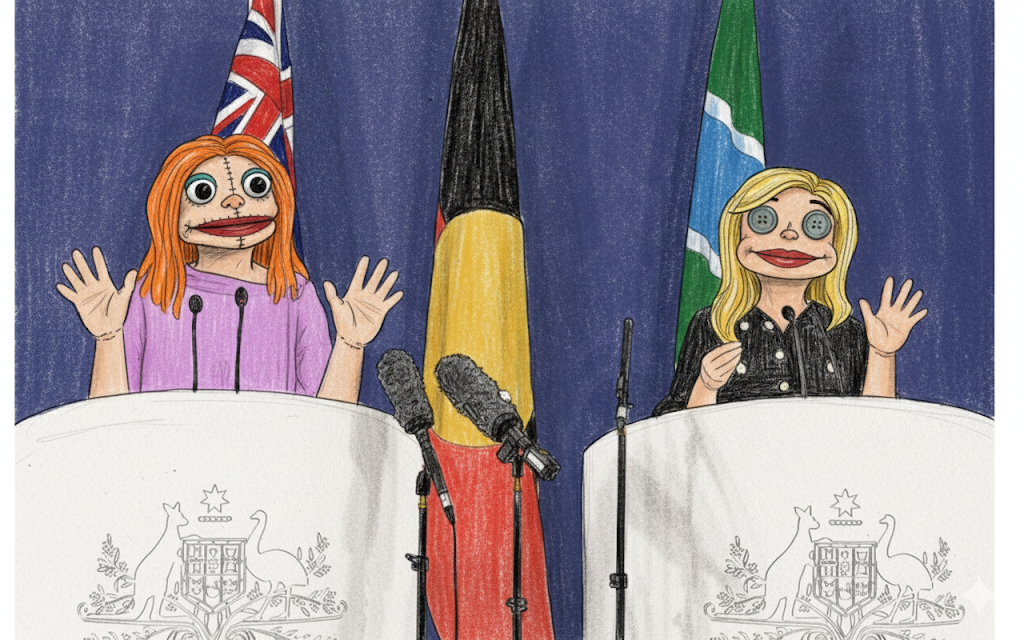IN SHORT: A SUMMARY FOR PEOPLE WHOSE ATTENTION SPAN HAS BEEN RUINED BY TIKTOK
-
In a move powered by tears, teddy bears, and a conveniently timed media campaign, the Australian government has decided to become the nation’s dad.
-
The new rule: No social media until you’re 16. The punishment for tech companies who fail to enforce this is a fine large enough to be considered a rounding error on their quarterly profits.
-
The policy was sold with the emotional power of grieving parents, a tactic so effective that even the Prime Minister couldn’t say no before taking a call from the leader of the free world. Priorities, you know.
WHAT’S NEXT?
A generation of teenagers will discover the magic of VPNs. Tech companies will spend a fortune on lobbyists and lawyers while publicly applauding the “spirit” of the law. And politicians will give themselves a gold star for solving the complex crisis of adolescent mental health by… turning off an app.

To understand this, you have to understand that this isn’t about technology. This is about power, reproduction, and the manufacturing of a crisis.
The state has always sought to control the body and social reproduction. This isn’t about enclosing land; it’s about the enclosure of childhood. For decades, the state was happy to let the digital commons be a wild, unregulated space where corporations could mine the attention of children for profit. Now, that experiment is producing “The Anxious Generation”—a crisis in social reproduction. The kids aren’t turning out right.
So the state steps in, not as a liberator, but as a better manager. It reasserts its patriarchal authority. The Prime Minister says it’s “for the mums and dads.” The Communications Minister calls herself the “general of the parent army.”
This is the language of the state as the ultimate family patriarch, protecting the nuclear family unit from a corrupting outside influence.
It’s drawing a new fence around the experience of being young.
It wasn’t a commission of experts. It was a popular movement, masterfully executed. “36 Months.” A radio host, grieving parents holding the ashes of their children. Power only concedes when it’s forced to. And there is no force more potent in politics than a parent weeping for their dead child on national television. The politicians “had me at hello,” as Dutton said. Of course, they did. Saying no is political suicide.
Look at who is amplifying this story. A media empire owned by Lachlan Murdoch, who just so happens to be in a financial dispute with Meta.
It’s a perfect storm: genuine grassroots pain meets cynical corporate leverage, and the state, seeing an opportunity for an easy political win with an election on the horizon, swoops in to play the hero.
This campaign was a propaganda masterpiece.
Step 1: Find a deeply emotional, unimpeachable messenger (the parents).
Step 2: Partner with a powerful media apparatus (The Daily Telegraph, Nova) to create a relentless drumbeat of crisis (“steady stream of news articles with statistics of self-harm and suicide”).
Step 3: Frame the issue as a simple moral binary. You are either for saving kids or you are with the evil tech giants. There is no room for nuance about digital literacy, the benefits of online communities for marginalized youth, or the root causes of mental illness.
Step 4: The government rides in on a white horse to deliver the “common sense” solution that has been pre-packaged for them.
It’s a beautiful, elegant machine for creating policy without the messy inconvenience of widespread consultation or critical thought.
The Moral of This Bedtime Story
George Carlin had a whole routine about “saving the children” being the ultimate political shield for any policy. This is it, in action.
The moral is this: When the state can’t offer its young people a stable future, a healthy planet, or an affordable home, it will offer them protection.
It is the easiest, cheapest promise to make. It reframes the government’s role from a provider of opportunity to a regulator of harm.
It’s a profound admission of failure, dressed up as a victory for families.
What to Expect Next (Because the Nanny Never Leaves)
-
A War of Annoyances: Teenagers will become amateur cybersecurity experts overnight. The use of VPNs will skyrocket. The ban will become a giant, frustrating game of whack-a-mole between kids and platforms.
-
The Declaration of Victory: Regardless of the actual impact on teen mental health (which is driven by far more than just Instagram), the government will declare the policy a resounding success. Anika Wells will be hailed as a giant-slayer. Albanese will have his “John Howard and the guns” legacy moment. The data will take years to collect, but the political victory is immediate.
-
Mission Creep: This is just the opening salvo. Now that the precedent is set for the state to regulate the digital lives of children so directly, what’s next? Age gates for gaming? Content filters on the entire internet? This isn’t the end of a chapter; it’s the prologue to a much larger book on state control of the digital realm.
It’s a fascinating spectacle.
The state, having lost control of the economy to global capital, is now desperately trying to regain control of the culture by tucking its children into a digitally-secure bed.
It’s a noble gesture, I suppose.
But it does feel a bit like they’re obsessively child-proofing the windows while the house is on fire.
This is a parody article of the original at https://www.afr.com/companies/media-and-marketing/the-inside-story-of-australia-s-world-first-social-media-ban-20250815-p5mn7s